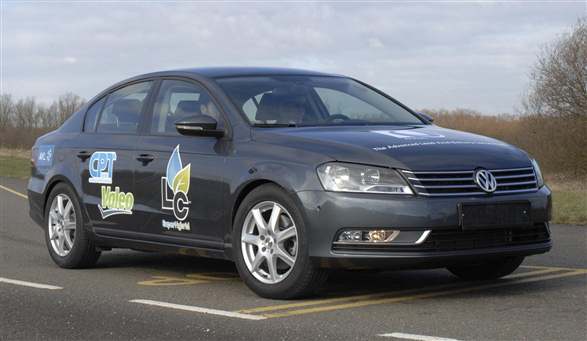The 2012 Geneva International Motor Show will see the debut of the new the LC Super Hybrid, a petrol-powered car that defines a whole new class of low cost, low consumption, lead-carbon hybrid vehicles.
The latest LC car has been developed by the UK's Controlled Power Technologies (CPT) and the Advanced Lead-Acid Battery Consortium (ALABC) - two organisations that were determined to achieve a significant CO2 reduction by using the latest lead-carbon batteries.
Based on a series production 1.4-litre turbocharged VW Passat TSI model - which is generally considered an industry point of reference for fuel economy in this size of vehicle; LC claims that its Super Hybrid will provide carmakers "with real world validation of its pioneering technology."
As its creators explained, significant CO2 reduction in the Super Hybrid can be achieved thanks to electric hybridisation at low voltages (12-48 volts) using the latest lead-carbon batteries.
The companies claim that the Super Hybrid technology offers the potential of a mass market, petrol-powered, large family car with good drivability, impressive performance and an excellent 5.6 litres/100km (51mpg) fuel economy, achieved at substantially lower cost than an equivalent diesel model.
Fuel economy
Further details revealed by the car manufacturer state that the LC Super Hybrid delivers CO2 emissions of less than 130g/km. LC said that this represents a significant reduction if it is compared with 140g/km for the baseline Passat 1.4-litre TSI (which is already best in class), or with 160g/km for the 1.8-litre TSI model.
LC explained that the 50 to 75mph top gear acceleration is reduced by 3.5 seconds from 16.0 to 12.5 seconds in the Super Hybrid. Similarly, the 0-62 mph time is reduced (from 11.1 to 8.7 seconds) when compared with the 1.4-litre TSI and achieves virtually the same acceleration (8.5 seconds) as the 1.8-litre TSI model, according to the firm.








